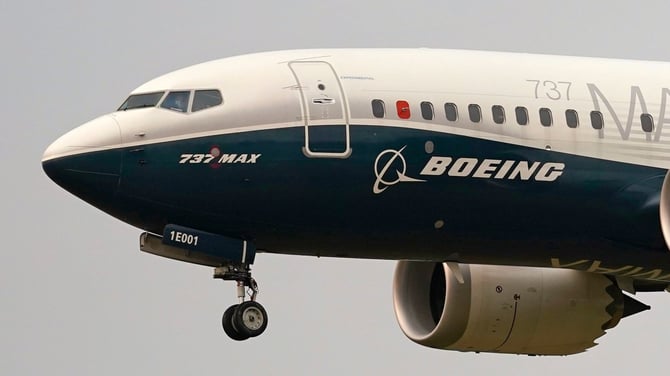Boeing Faces Steep Losses Amid Structural Challenges

Boeing's latest quarterly report shows a significant surge in losses, with the company posting a net loss of $6.2 billion, a steep rise from $1.6 billion the previous year. The commercial airplane division, which has been facing operational difficulties, contributed $4 billion to this figure.
Although the ongoing strike by 33,000 members of the International Association of Machinists, which started in mid-September, only impacted the final two weeks of the quarter, it has only succeeded in making the financial strain worse. Analysts estimate that the strike is costing Boeing an additional $1 billion each month, further deepening the company's financial woes.
Boeing’s space and defense sector also faced a $2.4 billion operating loss, unaffected by the strike but adding to the overall challenges. Boeing’s troubles, however, extend beyond labor disputes, with five years of operational issues culminating in significant debt accumulation.
Since 2019, Boeing has posted $39.3 billion in core operating losses, primarily driven by the 737 Max crisis and delays with its 777X aircraft. The company’s long-term debt has ballooned to $53 billion, up from $10.7 billion in early 2019. To manage these losses, Boeing plans to borrow an additional $25 billion through stock and debt sales.
What Does This Mean for Me?
While a union vote may end the strike soon, potentially raising labor costs by over $1 billion, Boeing’s cost-cutting measures, including a 10% workforce reduction, may offset the wage increases. Many analysts believe that the company must further focus on stabilizing operations to navigate its ongoing financial and operational challenges.
More News

Novo Nordisk Shares Soar as FDA Clears First Weight-Loss Pill
1 day ago

From Comeback to Contender: Can Europe’s Banks Deliver Again in 2026?
1 week ago

Oracle’s Miss Stirs Fresh AI Bubble Jitters
1 week ago

Netflix’s $72bn Power Play Sets Up a Streaming Shockwave
2 weeks ago

HP Bets on AI as Cost Pressures Mount and Layoffs Deepen
3 weeks ago

SoftBank Cashes Out of Nvidia to Double Down on AI Bets
1 month ago

Amazon Rallies 13% as Cloud and AI Power Record Earnings
1 month ago

Apple Is Now a $4 Trillion Company
1 month ago